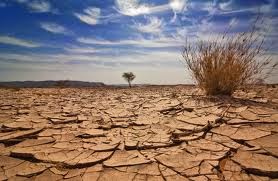Adoption
and promotion these schemes – including the Clean Development Mechanism (CDM) and
the REDD plus, which stands for Reducing Emissions from Deforestation and
forest Degradation – present financial opportunities.
The
World Bank, in 2010, put the value of the global carbon market at $142 million.
Farmers
and other groups are concerned about whether they will ever enjoy such benefits.
George
Amankwaah has been growing trees for over 10 years in Ghana’s Brong Ahafo
region. Like most Ghanaian agro-foresters, he wants to benefit from this global
carbon market.
 “This
carbon credit, some African countries are earning money out of it but in Ghana
here, we don’t understand carbon credit because we have not been trained on how
to earn income for farmers,” he complained.
“This
carbon credit, some African countries are earning money out of it but in Ghana
here, we don’t understand carbon credit because we have not been trained on how
to earn income for farmers,” he complained.
Ghana
has joined the international REDD+ readiness process through the World Bank’s
Forest Carbon Partnership Facility (FCPF), which aims at creating capacity to
fully engage in and utilize the REDD+ mechanism to address climate change
adaptation and mitigation.
In
2012, the country was also included in the UN-REDD program, though no financial
support has yet been allocated to Ghana.
To
benefit from carbon trading, farmers are provided technical support to
calculate the payments they are entitled to – according to how much carbon is
stored in the trees over their life span.
Funding
for the scheme comes from a variety of international sources, including the United
Nations, the World Bank and the Global Environment Facility.
 The
payments are made by polluting companies in Europe and America who want to
reduce their environmental impact by compensating for their carbon dioxide
emissions.
The
payments are made by polluting companies in Europe and America who want to
reduce their environmental impact by compensating for their carbon dioxide
emissions.
This
is a valuable opportunity creating income for local farmers, restoring the
degraded land and also helping to tackle global warming.
Farmers
living in deforested and degraded land in parts of Africa have begun earning
carbon credit payments by planting trees.
However,
climate justice activists are contesting the credibility of such schemes in
mitigating climate change.
“Carbon
credit is not the way out because what the world needs is the physical
elimination of carbon dioxide from the atmosphere. There is no way that the
North will continue their ways of production and consumption, emitting more carbon
and thinking that whatever they are doing here, they are paying us to suck it
out; it will never work,” stated Augustine Njamnshi of the Pan African Climate
Justice Alliance (PACJA).
According
to him, “carbon trade is a false solution; land grab, the non-recognition of
rights of indigenes and local communities over resources will be happening if
we don’t go into it and start fighting from within.”
Civil
society organizations in Africa have declared that the “opportunities and
limitations of REDD+ remain uncertain and Africa should exercise caution in
matters of REDD+ and carbon markets.”







No comments:
Post a Comment